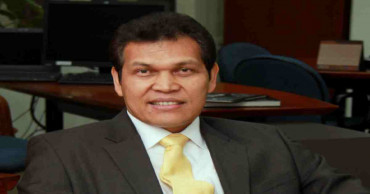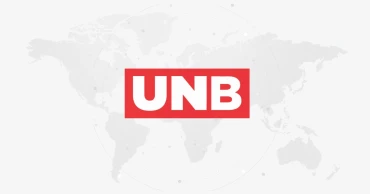Asian Development Bank (ADB)
ADB approves $600 million loan for Bangladesh
The Asian Development Bank (ADB) has approved a $600 million policy-based loan (PBL) for Bangladesh to support the country’s structural reforms.
The reforms are aimed at strengthening domestic resource mobilisation, improving public investment efficiency, fostering private sector development, reforming state-owned enterprises, and enhancing transparency and governance.
ADB approves $100 million more loan for infrastructure development in Bangladesh
“ADB’s PBL promptly responds to Bangladesh’s immediate development financing needs following the political transition. The reforms target improvements in economic management and governance as well as economic diversification and competitiveness,” said ADB Regional Lead Economist Aminur Rahman.
He said, “ADB's programme was developed in close collaboration with the International Monetary Fund, World Bank, and other development partners."
Bangladesh faces significant challenges with revenue mobilisation, having the lowest tax-to-gross domestic product ratio globally at only 7.4%.
The loan programme will enable Bangladesh to implement critical policy measures to increase domestic resource mobilisation, focusing on digitalisation, green initiatives, rationalising tax incentives and exemptions, and measures to improve taxpayer morale, according to a message received by UNB on Wednesday.
ADB pledges $24.3 million to finance establishment of solar power plant in M'singh
Another key goal of the PBL is to enhance transparency and efficiency in public investment projects through increased digitalisation. The programme supports private sector development and foreign direct investment (FDI) by streamlining regulations and fostering a level playing field.
More than 130 services have been made available on an integrated online platform to simplify business creation and operations.
Besides, the reforms aim to improve governance and performance monitoring of state-owned enterprises, simplify FDI approval processes, and promote institutional reforms in the logistics sector.
This “whole of government” approach to logistics is expected to reduce trade costs and promote export diversification.
Masato Kanda elected ADB President, succeeds Masatsugu Asakawa
The ADB remains committed to achieving a prosperous, inclusive, resilient, and sustainable Asia and the Pacific while continuing its mission to eradicate extreme poverty.
Established in 1966, the organisation has 69 member countries, with 49 from the region.
1 year ago
Bangladesh to receive $1.1 billion from AD, WB by Dec: Finance Secretary
The Asian Development Bank (ADB) and the World Bank will provide $600 million and $500 million in loan assistance respectively by December 2024, said Finance Secretary Dr Md Khairuzzaman Mozumder on Tuesday.
He made the disclosure during a press conference at the Ministry of Finance, organised marking the interim government’s 100-day milestone.
Responding to a query from journalists on the amount of loan commitments received by the interim government, Dr Mozumder said the policies implemented by the interim administration have been positively received by donor agencies such as the International Monetary Fund (IMF) and the World Bank.
“Our interim government’s policy measures have yielded good results, exceeding our initial expectations in terms of funding. For instance, we have successfully negotiated $600 million in loans with ADB and expect to receive the funds by December,” the finance secretary said.
World Bank and ADB to provide $2.5 billion to reform banks and financial sector
He also highlighted progress with the World Bank, which has agreed to provide $500 million in loan support within the same timeframe. “Originally, these loans were set at $300 million and $250 million, respectively, but were later doubled due to favourable negotiations.”
The government is seeking further financial assistance from the IMF, Dr Mozumder said adding, “We have requested an additional $1 billion in support from the IMF for this year. Discussions are set to conclude when the IMF team visits on 4 December, and we are optimistic about the outcome.”
ADB senior officials meet Prof Yunus; keen to support vital structural reforms
The finance secretary expressed confidence in the government’s ability to implement its policies effectively and secure continued support from international financial institutions.
Chaired by Finance Adviser Salehuddin Ahmed, the press conference was attended, among others, by Financial Institutions Division Secretary Nazma Mubarak, Economic Relations Division (ERD) Secretary Md Shahriar Kader Siddiky, and National Board of Revenue (NBR) Chairman Md Abdur Rahman Khan.
1 year ago
ADB plans to provide $14 billion to ease worsening food crisis in Asia
The Asian Development Bank (ADB) on Tuesday announced plans to provide at least $14 billion over 2022–2025 to ease a worsening food crisis in Asia and the Pacific, and improve long-term food security.
The assistance expands ADB’s already significant support for food security in the region, where nearly 1.1 billion people lack healthy diets due to poverty and food prices which have soared to record highs this year.
Read:Bangladesh’s GDP likely to grow by 6.6% in FY 2023: ADB
The funding will be channeled through existing and new projects in sectors including farm inputs, food production and distribution, social protection, irrigation, and water resources management, as well as projects leveraging nature-based solutions.
ADB said it will continue to invest in other activities which contribute to food security such as energy transition, transport, access to rural finance, environmental management, health, and education.
“This is a timely and urgently needed response to a crisis that is leaving too many poor families in Asia hungry and in deeper poverty,” said ADB President Masatsugu Asakawa, in remarks at ADB’s 55th Annual Meeting.
“We need to act now, before the impacts of climate change worsen and further erode the region’s hard-won development gains. Our support will be targeted, integrated, and impactful to help vulnerable people, particularly vulnerable women, in the near-term, while bolstering food systems to reduce the impact of emerging and future food security risks.”
The situation in Ukraine has disrupted supplies of food staples and fertilizer, straining a global food system already weakened by climate change impacts, pandemic-related supply shocks, and unsustainable farming practices.
Asia and the Pacific is vulnerable to food shocks, as some of its countries depend on imported staples and fertilizer.
Read:ADB provides assurances of $2 billion in budget support
Even before the invasion of Ukraine, nutritious food was unaffordable for significant portions of the population in many ADB low-income member countries.
As well as supporting vulnerable people, ADB’s food security assistance will promote open trade, improve smallholder farm production and livelihoods, ease shortages of fertilizer and promote its efficient use or organic alternatives, support investments in food production and distribution, enhance nutrition, and boost climate resilience through integrated and nature-based solutions.
A key focus will be to protect the region’s natural environment from climate change impacts and biodiversity loss, which have degraded soils, freshwater, and marine ecosystems.
“An important part of our long-term approach is to safeguard natural resources and support farmers and agribusinesses which produce and distribute much of the region’s food, and to promote open trade to ensure it reaches consumers efficiently,” said Mr. Asakawa.
Assistance under the program will start this year and continue through 2025.
It will be drawn from across ADB’s sovereign and private sector operations, and seek to leverage an additional $5 billion in private sector cofinancing for food security.
ADB will apply lessons learned from supporting its members during the global food crisis in 2007–2008 and through the implementation of its food security operational plan the following year.
Since then, ADB has provided $2 billion in annual investments in food security. In 2018, ADB identified food security as a key operational priority.
3 years ago
Bangladesh’s GDP likely to grow by 6.6% in FY 2023: ADB
Bangladesh’s gross domestic product (GDP) is expected to grow by 6.6% in fiscal year (FY) 2023, according to the latest Asian Development Bank (ADB) report, Asian Development Outlook (ADO) 2022 Update, released on Wednesday.
The moderately lower growth forecast reflects slower domestic demand and weaker export prospects due to slower growth in advanced economies.
Read: ADB provides assurances of $2 billion in budget support
Inflation is projected to rise from 6.2% in FY2022 to 6.7% in FY2023. The current account deficit is expected to narrow from 4.1% of GDP in FY2022 to 3.6% of GDP in FY2023 as imports slacken and remittances increase.
The main risk to this growth projection is a slowdown in exports caused by global uncertainty over the prolonged war in Ukraine.
“The government is navigating the prolonged external economic uncertainties relatively well and has implemented appropriate policies to reduce the external imbalance, said Country Director Edimon Ginting.
But turbulent times like these are also a good time to accelerate reforms that would improve the country’s growth prospects in the medium term, he said.
These reforms include improving domestic resource mobilization, deepening the financial market, and enhancing competitiveness to promote the creation of productive jobs in the private sector, Ginting said.
Read: ADB, govt agree to complete projects timely to boost economic recovery
Uncertainties in the international energy market provide a good momentum to accelerate reforms to achieve the country’s climate change goals and expand domestic renewable energy supply to reduce dependence on fossil fuels, he added.
The ADO 2022 Update states that private investment growth will be lower due to global uncertainty and energy shortages.
With slower revenue growth and higher import costs, public investment growth will also be slower as a result of government austerity measures.
Inflation is expected to accelerate from 6.2% in FY2022 to 6.7% in FY2023 as price pressures increase due to the upward adjustment of domestic administered prices for all types of fuel and rising global commodity prices.
3 years ago
ADB approves $250mn for Bangladesh social resilience programme
Dhaka, June 9 (UNB) - The Asian Development Bank (ADB) on Thursday approved a $250 million policy-based loan to support social protection reforms in Bangladesh designed to protect vulnerable population against socioeconomic challenges.
The loan will finance Subprogram 2 of the Strengthening Social Resilience Program and build on the first subprogram which implemented institutional and policy reforms that strengthened the inclusiveness and responsiveness of social protection in Bangladesh.
“The COVID-19 pandemic highlighted the need to strengthen social protection systems to help people cope and manage disasters and crises,” said ADB Principal Social Sector Specialist for South Asia Hiroko Uchimura-Shiroishi.
“This subprogram continues ADB’s support to improve the coverage and efficiency of social protection programs in Bangladesh, build resilience of the disadvantaged, and support an inclusive recovery.”
Also read: Kamal thanks ADB for budget aid during pandemic
Under the new program, ADB is supporting the government in strengthening reforms to improve social protection coverage and efficiency, deepen the financial inclusion of disadvantaged people, and strengthen the response to diversified protection needs.
In various stages of implementation, some specific reforms include better protection coverage of disadvantaged women and the urban poor.
Subprogram 2 also helps to improve efficiency by digitalization and integration of systems as well as harmonization of government programs.
Also read:ADB reaffims commitment to Bangladesh's sustainable development
Greater financial inclusion of the disadvantaged will be broadened by improving the usability of mobile financial services through the quick response (QR) code payment services, particularly in rural areas.
Mobile clinics help boost health provision to the urban poor, including the floating people in urban areas.
This subprogram also supports a contributory protection scheme by focusing on an employment injury scheme.
Most social protection programs in Bangladesh are funded by the government and target the poor and vulnerable.
This contributory protection scheme will offer protection to a wider population and help augment government financing for social protection.
As of 2021, ADB’s cumulative assistance to Bangladesh since 1973 amounted to about $48 billion through loans, grants, and co-financing. ADB’s active portfolio in the country stands at around $11 billion with 50 projects as of April 2022.
3 years ago
ADB projects to be fast-tracked in aid of recovery
At a tripartite portfolio review meeting (TPRM) on Sunday, Bangladesh and the Asian Development Bank (ADB) agreed to take actions to accelerate the implementation of ADB-assisted projects for boosting socio-economic recovery.
Director General for ADB’s South Asia Department Kenichi Yokoyama appreciated macroeconomic management and policies of Bangladesh for expeditious socio-economic recovery from the coronavirus disease (COVID-19) pandemic, according to a release from the ADB.
Read: Finance minister thanks ADB for prompt assistance in tackling pandemic
He thanked Bangladesh government for continued strong partnership and conveyed ADB’s readiness to work together in developing innovative and transformative solutions to address climate challenges and generate strong economic recovery with high inclusiveness, and economic diversification.
To further improve project implementation, DG Yokoyama also emphasized better project readiness, reduction of procurement time, and timely completion and closing of the projects with high discipline.
Economic Relations Division (ERD) Secretary Fatima Yasmin and ADB Country Director for Bangladesh Edimon Ginting co-chaired the TPRM.
Deputy Director General for South Asia Department Manmohan Parkash, ADB’s Alternate Executive Director Md. Azizul Alam, senior officials from the Government of Bangladesh, project directors, and ADB staff participated in-person as well as virtually in the first review meeting in 2022 for resolving project issues and formulating strategies to quicken project implementation.
With a positive outlook after the COVID-19 pandemic, Country Director Edimon Ginting encouraged all to set higher expectations and project targets for 2022.
“Faster project implementation will not only improve the public service delivery but will also help accelerate socio-economic recovery from the pandemic-induced losses,” Ginting said.
The TPRM reviewed the progress of actions agreed in August 2021, readiness status of 2022 pipeline projects, and upstream knowledge work. During the TPRM, 42 selected projects were discussed on 113 different issues and over 130 specific timebound actions were agreed.
Read: Govt, ADB ink $13.5 mln loan deal to improve irrigation management
ADB’s current sovereign portfolio has 50 projects comprising 89 loans and grants with a net portfolio of $10.63 billion.
ADB operates in Bangladesh in six sectors—energy; transport; water and urban/municipal infrastructure and services; education; finance; and agriculture, natural resources, and rural development.
The cumulative lending to Bangladesh stands at around $48 billion in loans and grants, including co-financing.
3 years ago
ADB approves $150 million loan to Bangladesh to help recovery of Covid-hit enterprises
The Asian Development Bank (ADB) on Thursday approved a $150 million loan to Bangladesh to provide financing for cottage, micro, and small-sized enterprises (CMSEs) operated by youth.
The fund will be used for assistance to returning migrant workers, and rural entrepreneurs, particularly women, who have been hit hard by the coronavirus disease (COVID-19) pandemic, according to a press release.
The loan to Bangladesh Bank will be on-lent to participating financial institutions (PFIs), which in turn will help 30,000 CMSEs operated by the beneficiaries, said the release.
Read: ADB, multilateral banks commit to mainstreaming nature at COP26
The project aims to facilitate employment creation and help these vulnerable groups recover from the adverse impact of the COVID-19 pandemic.
Youth unemployment remains at a high level in the country, and they are more severely affected as they concentrate in sectors such as retail trade, accommodation, and food services, which were worst hit by the pandemic.
As per the press release, about 400,000 overseas migrant workers have returned since the start of the pandemic, and many remain unemployed.
Rural incomes have stayed depressed and nonfarm employment opportunities remain limited. Rural enterprises were severely affected, putting further pressure on rural employment.
“ADB supports the Bangladesh government’s long-term strategy to tackle the country’s employment challenges, which has been exacerbated by the pandemic,” ADB Principal Financial Sector Specialist for South Asia Dongdong Zhang said.
He said that promoting access to finance will help address a critical challenge of helping vulnerable groups in the immediate term and developing CMSEs in the long term.
Given the limited access of women to finance and their high concentration in retail, travel, and hospitality sectors, they have borne brunt of the impact of the pandemic.
Read: ADB raises climate financing target to $100 bln by 2030
The project has targeted to disburse 20 per cent of the funds to microbusiness led by women to support their recovery.
ADB will provide an additional $900,000 technical assistance grant from its Technical Assistance Special Fund for Bangladesh Bank and PFIs to help them strengthen their risk management capacities, business process, and information systems.
The assistance will also boost their support of CMSEs by incorporating mobile finance, value chain financing, and sustainable financing tackling climate change.
This project builds on the $250 million policy-based Strengthening Social Resilience Program, approved by ADB in June 2021, to strengthen Bangladesh’s social protection programs and resilience of vulnerable groups.
It also complements the $50 million additional financing to the ongoing Microenterprise Development Project, approved in December 2020, to help restore economic activities of microenterprises affected by COVID-19 in the country.
4 years ago
ADB raises climate financing target to $100 bln by 2030
The Asian Development Bank (ADB) has announced it is elevating its ambition to deliver climate financing to its developing member countries (DMCs) to $100 billion for the 2019–2030 period.
“The battle against climate change will be won or lost in Asia and the Pacific,” said ADB President Masatsugu Asakawa.
He said that the climate crisis is worsening daily, prompting many to call for increased climate finance.
Read: ADB appoints new country head for Bangladesh
“We are taking action to meet this call by elevating our ambition to $100 billion in cumulative climate finance from our own resources by 2030.”
In 2018, ADB committed to ensuring at least 75 percent of the total number of its operations support climate action and its own climate finance resources reach at least a cumulative $80 billion by 2030.
Today’s announcement elevates the ambition of this financing.
ADB expects the cumulative climate financing from its own resources in 2019–2021 to reach about $17 billion.
The expanded climate finance ambition is a key element of ADB’s efforts to support its DMCs. Facing the interconnected challenges of the coronavirus disease (COVID-19) pandemic and the climate crisis, many DMCs are taking bold action to promote a green, resilient, and inclusive recovery.
Read: ADB to provide Bangladesh $250 million for Covid recovery
The additional $20 billion will provide support for the climate agenda in five main areas:
First, new avenues for climate mitigation, including energy storage, energy efficiency, and low-carbon transport. ADB expects its cumulative climate mitigation finance to reach $66 billion.
Second, a scale-up of transformative adaptation projects. Projects in climate-sensitive sectors, such as urban, agriculture, and water, will be designed with a primary purpose of effective climate adaptation and enhanced resilience. ADB expects its cumulative adaptation finance to reach $34 billion.
Third, an increase in climate finance in ADB’s private sector operations. This includes creating more commercially viable projects for both ADB and private investors.
The expansion will be underpinned by improvements in operational efficiencies, a post-pandemic recovery in market demand for financing, new technologies and innovations in climate financing, and new areas of business for private sector climate operations.
Read: ADB to loan $400 million to Bangladesh under agreement signed Monday
ADB intends to support these initiatives with $12 billion in cumulative private sector climate finance from its own resources and anticipated crowding in of an additional $18 billion to $30 billion.
Fourth, support for a green, resilient, and inclusive recovery from COVID-19, including through innovative financing platforms such as the ASEAN Catalytic Green Finance Facility and Green Recovery Platform, which are expected to leverage funds from capital markets and private sector investors for low-carbon infrastructure.
Fifth, support to advance reforms in DMCs to unlock actions through policy-based lending to support policies and institutions for enhanced climate resilience and climate mitigation.
4 years ago
ADB appoints new country head for Bangladesh
The Asian Development Bank (ADB) has appointed Edimon Ginting as its new Country Director for Bangladesh.
He assumed office on Tuesday. He succeeded Manmohan Parkash who recently joined ADB’s South Asia Department as Deputy Director General, according to a release.
Ginting will lead ADB’s operations in Bangladesh and policy dialogue with the government, development partners and other stakeholders.
He will oversee the implementation of ADB’s upcoming country partnership strategy for Bangladesh, 2021–2025, which focuses on a rapid Socio-economic recovery from the pandemic, boosting competitiveness by improving infrastructure for private sector-led development, promoting green growth and climate resilience, and strengthening human capital and social protection, among others.
Read:ADB to provide Bangladesh $250 million for Covid recovery
Ginting has 22 years of professional experience, including about 14 years in ADB.
Prior to joining ADB, he worked as an economist at the International Monetary Fund in the United States and as an Advisor to the Budget Committee of the Indonesian Parliament.
He joined ADB in 2007 as an economist and held a series of senior positions, including Senior Country Economist and Deputy Country Director at ADB’s Indonesia Resident Mission, and Director for Economic Analysis and Operational Support Division at ADB headquarters.
Ginting has been working as the Deputy Director General for ADB’s Economic Research and Regional Cooperation Department since 2018.
Ginting, a national of Indonesia, holds a doctorate degree in economics from Monash University, Australia. He also holds a master’s degree in economics from Thammasat University, Thailand, and a bachelor’s degree in economics and development studies from Gadjah Mada University, Indonesia.
Read: ADB to loan $400 million to Bangladesh under agreement signed Monday
“Ginting brings strong strategic leadership skills as ADB’s Country Director for Bangladesh in helping the country to reduce poverty and promote inclusive, sustainable, and climate resilient socioeconomic development,” said ADB Director General for South Asia Kenichi Yokoyama.
“The ADB team led by Ginting will further widen and deepen the strong Bangladesh–ADB partnership by managing the sovereign, private sector, and knowledge operations effectively.”
Ginting said, "I look forward to working closely with the government and the people of Bangladesh to overcome the Covid-19 pandemic, restore high economic growth, and achieve the country’s development goals, including becoming an upper middle-income country in 2031 and a developed nation in 2041."
“Inclusive, climate-resilient, and environment-friendly development will be pursued in close collaboration with the government and development partners to promote a more harmonious and sustainable growth process in the country."
4 years ago
Bangladesh to get $ 940 mln ADB loans for procuring Covid vaccine
The Asian Development Bank (ADB) will give USD 940 million in loans to Bangladesh for procuring safe and effective vaccines against Covid-19.
An agreement was signed on Thursday in this regard.
Read:Govt, ADB ink 250 mln loan deal to strengthen social resilience program
Economic Relations Division (ERD) secretary Fatima Yasmin and ADB Country Director Manmohan Parkash signed the loans agreement on behalf of Bangladesh and ADB respectively at a simple ceremony at the ERD in Dhaka.
The package, which comprises a regular loan and a concessional loan of $470 million each, is part of ADB’s $9 billion Asia Pacific Vaccine Access Facility (APVAX) launched in December 2020 to offer rapid and equitable vaccine-related support to ADB’s developing member countries (DMCs), according to a release from ADB.
The project will fund the purchase of an estimated 44.7 million doses of Covid-19 vaccines to be administered to more than 20 million Bangladeshis by 2024, contributing to the government’s National Deployment and Vaccination Plan for Covid-19 Vaccines.
The vaccines will be secured through the Covid-19 Vaccines Global Access (COVAX) program, the United Nations Children’s Fund (UNICEF), or bilateral arrangements with vaccine manufacturers or distributors.
Vaccines eligible for financing must meet at least one of the APVAX eligibility criteria: the vaccine has been selected for procurement through the COVAX mechanism; the vaccine has been prequalified by the World Health Organization (WHO) or WHO emergency use listing; or the vaccine has received regular or emergency licensure or authorization by a Stringent Regulatory Authority.
Read:ADB approves $250 million loan to Dhaka to finance reforms
ADB Country Director Manmohan Parkash said that Safe and effective mass vaccination is critical for protecting lives and livelihoods, and ensuring quick socio-economic recovery from the COVID-19 pandemic.
“This is our single largest support for vaccine procurement till now, and ADB is committed to help the government of Bangladesh in procuring quality and affordable vaccines early.”
He also mentioned that Vaccines can reduce virus transmission and infection, and curtail mortality, contributing to saving lives and alleviating pressures on the health system.
“In addition to vaccine procurement, we are also pleased to help improve the vaccine registration, delivery, distribution, monitoring, coordination, and management systems,” Parkash said.
“The assistance follows our reoriented program priorities in supporting a quick socio-economic recovery in Bangladesh,” he added.
Read: Climate Change to get priority in Bangladesh alongside Covid support:ADB
ADB is helping the government strengthen its vaccine delivery system and fight against COVID-19 through ongoing technical assistance projects worth around $7 million.
In addition, ADB has supported Bangladesh’s Covid-19 response through a $250 million loan in June 2021 to strengthen social protection and resilience programs, a $500 million loan in May 2020 for expanding social safety nets for vulnerable groups and supporting critical labor-intensive industries and small and medium enterprises to preserve jobs, a $100 million loan in April 2020 to support procurement of equipment and supplies and upgrading of health and testing facilities, a $50 million loan for microenterprise development for creating jobs, an initial emergency grant of $350,000 for the procurement of medical supplies and equipment, and $1.3 million from an ongoing project to provide one-time cash support to trainees of an ongoing skills training program.
4 years ago


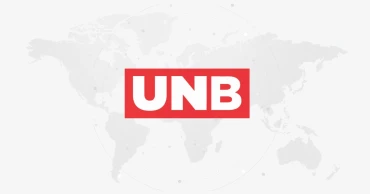
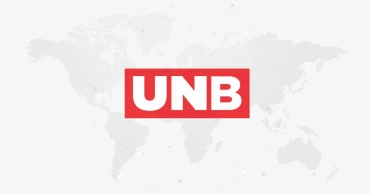
.jpg)
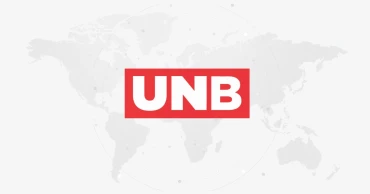
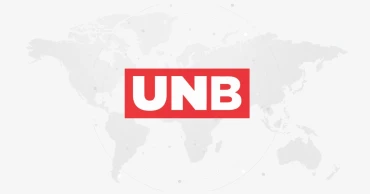
.jpg)
